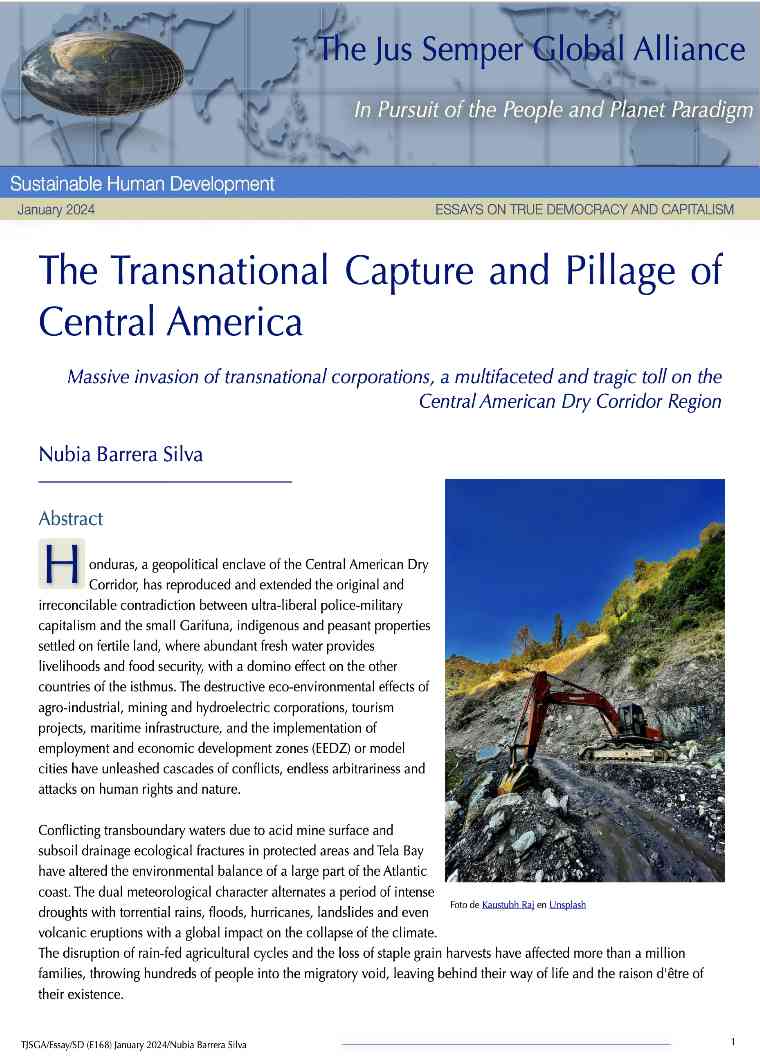Massive invasion of transnational corporations, a multifaceted and tragic toll on the Central American Dry Corridor Region
Conflicting transboundary waters due to acid mine surface and subsoil drainage ecological fractures in protected areas and Tela Bay have altered the environmental balance of a large part of the Atlantic coast. The dual meteorological character alternates a period of intense droughts with torrential rains, floods, hurricanes, landslides and even volcanic eruptions with a global impact on the collapse of the climate. The disruption of rain-fed agricultural cycles and the loss of staple grain harvests have affected more than a million families, throwing hundreds of people into the migratory void, leaving behind their way of life and the raison d'être of their existence. Central America is located in the Northern Hemisphere of thetorrid zone, part of the Pacific Ring of Fire. It is a natural bridge between the Americas, the Caribbean Sea to the east and the Pacific Ocean to the west. Its biogeography is spread overeleven ecoregions of freshwater, mountains and volcanoes in the Ring of Fire. In this paper, Honduras is the geopolitical epicentre of the Central American Dry Corridor (hereafter CDC).Activist Bertha Cáceres highlights Honduras' geopolitical position in the concentration of capital from the most promising sectors of the Global North and its subsequent expansion to the rest of the CDC countries. The massive invasion of corporate capital demanded from the outset the complete militarisation of Honduras, extended to the other neighbouring CDC countries as a strategy of occupation and indiscriminate domination of natural capital and the creation of model cities.
For a full read of this brief, click here or on the picture to download the pdf file.
|

- © The Jus Semper Global Alliance
| Home |  | Resources |  | Economic Data |  | The Transnational Capture and Pillage of Central America |


